Blue Shield of California 100 North Sepulveda Blvd Los Angeles Ca 90245
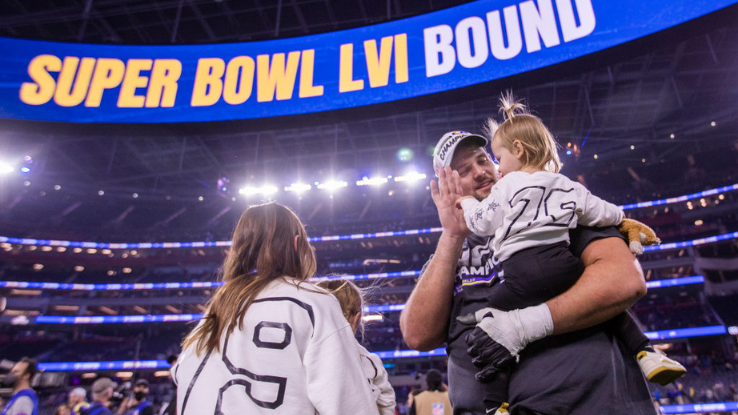
Sports may not be everyone's first thought when it comes to Los Angeles, but the city's proximity to the Hollywood elite makes it quite the hub for professional sports. Everyone from Jack Nicholson to Kim Kardasian to Lizzo has been spotted courtside at Lakers and Clippers games. The Dodgers, Galaxy and Kings — the baseball, soccer and hockey teams of La La Land — consistently perform well. Nearby Anaheim has its own professional sports teams, the Ducks and the Angels.
With popular college football teams in the area like USC and UCLA, one would think that an NFL team in LA would be a no-brainer. Today, two NFL teams call Los Angeles home. The LA Rams and the LA Chargers share SoFi Stadium, but this is a more recent development.
The NFL's relationship with LA has been exciting to watch from the sidelines. Like the celebrities and visionaries that populate the area, the NFL and LA have broken up and gotten back together more times than most celebrity couples. Filled with lawsuits, name changes and shared custody of stadiums, it's a real journey. So, before you tune in to Super Bowl LVI, let's dive into LA's complicated relationship with the NFL.
Everything Was Fine Until 1995
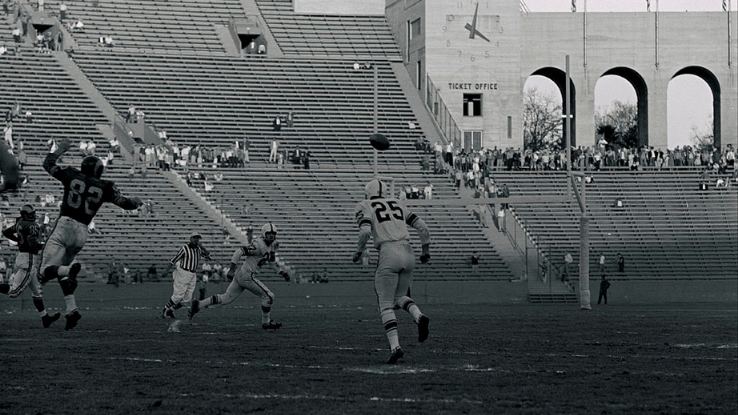
LA's first football team can be traced back to the 1940s. In 1946, the Cleveland Rams moved their professional team over to the West Coast. The original LA Rams shared a stadium with USC's Trojans and UCLA's Bruins. The move came with one controversial condition: integration. Black athletes, like in other sports organizations at the time, played in segregated leagues. But this move to LA was a catalyst for this social change in pro football.
This first incarnation of the LA Rams moved to Anaheim in 1979. They kept "LA" in their name despite their Orange County location. With extra room to spare, the Raiders franchise moved from Oakland to LA in 1982. Both teams coexisted in LA peacefully. The city of LA celebrated the Rams' championship victory in 1951 and the Raiders' Super Bowl win in 1984.
The Rams were the first to exit the stadium. When her husband passed away, Georgia Frontiere became the owner of a franchise — the only time a woman has outright owned an NFL team. Frontiere began exploring other options for new stadiums in the 1990s because their current one couldn't keep up with the growing demands for luxury boxes. Unsurprisingly, the city's fans had an aggressive response when Frontiere ultimately moved the team to St. Louis ahead of the 1995 season.
Something must have been in the water of the Los Angeles river in 1995, because the Raiders left the same year. Really, it wasn't the water, but the 1994 Northridge Earthquake. Repairs were needed, so upgrades couldn't happen. Al Davis, the owner of the Raiders, moved the franchise back to Oakland, making LA "the city without a football team" — at least for a while.
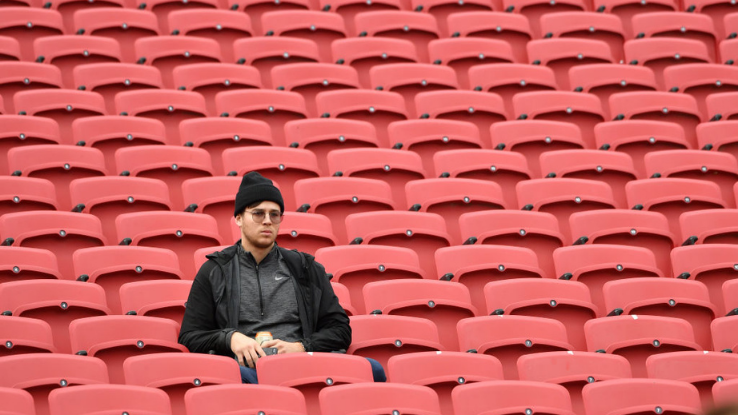
California is dealing with one of its worst droughts in history, but the '90s ushered in a weird era for Los Angeles. There was no pro football in LA but other sports franchises were doing well. In a city where appearances are king, the sports landscape was an incomplete outfit. It was like LA was missing it's favorite pair of earrings or wearing the wrong shoes to an event.
In 1996, the Seattle Seahawks almost moved down to LA but it didn't pan out. The California city almost landed an expansion team in 1999, but that didn't pan out either; that team ultimately became the Houston Texans. Eventually, "moving the franchise to LA" became a punchline as well as a threat from owners and NFL officials alike. Sometimes referred to as a bargaining token, many stadiums were built in the late '90s and the beginning of the new millennium because cities didn't want to lose their pro teams.
A 2007 op-ed from NBC News said it best: "The threat of moving a team to Los Angeles is more valuable for the NFL than actually placing a team there. It's the perfect bargaining chip for the league: Why would a franchise stay in, say, cold-weather, small-market Minnesota without a new stadium when big-market, celebrity-studded LA beckons?"
A great question, indeed. It would take 20 years, but football would finally return to LA in a stadium that's as lux as the people who live there.
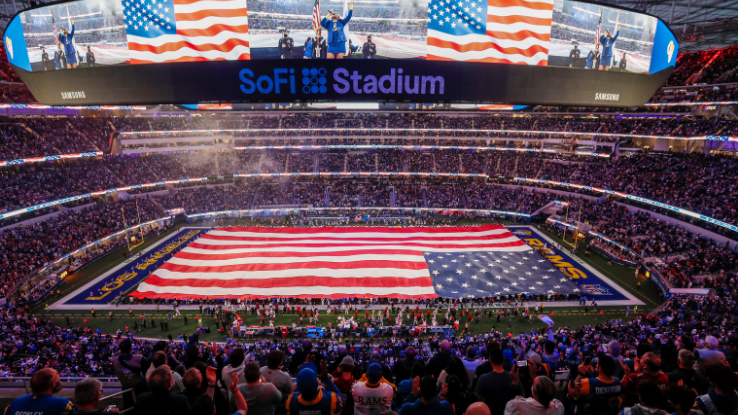
The Rams' return to LA became a serious possibility after the 2010 passing of Georgia Frontiere. The new owners of the franchise went back and forth with the city of St. Louis in a legal battle that lasted close to a decade. The Rams were ordered to pay a settlement of $790 million for leaving St. Louis, but, by 2016, football was back in LA.
Around the same time, the Oakland Raiders and the San Diego Chargers were also in talks to move cities. After a long will they/won't they period, the Raiders set up shop in Las Vegas, instead. The Chargers, however, moved back to their original home in LA.
Perhaps following "suit" (or seeing the large payout that St. Louis received), the city of San Diego is now suing the NFL for the Chargers' move. An NFL team can bring in a lot of tourism and revenue, so we don't see this issue going away anytime soon.
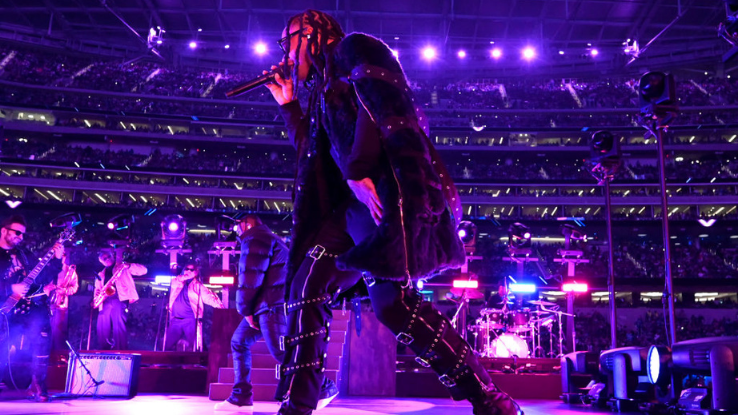
SoFi Stadium opened in September of 2021. Today, multiple football teams call SoFi Stadium home. Typically, the stadium holds around 70,000 spectators, but for larger events like the Super Bowl, it can hold more than 100,000 guests. There are 260 executive suites, so this is a stadium that former Rams owner, Georgia Frontiere, would approve of. In addition to being the home of both the Rams and Chargers, the stadium hosts the LA Bowl, part of NCAA football's postseason.
Super Bowl LVI is slated to be the first massive event hosted at the new facility. SoFi Stadium has also been used for concerts, local sporting events and as a vaccination site during the COVID-19 pandemic. In the coming years, SoFi Stadium will host the 2023 College Football Championship, the 2026 World Cup and the 2028 Paralympic Games.
Built atop of a former racetrack site in Hollywood Park, this space has the potential to see some incredible programming and sports moments in the near future. The NFL, in the meantime, remains in good standing with the city of Los Angeles. And while it looks like it will work out long-term between LA and the NFL, we're always ready for some football drama.
Source: https://www.ask.com/lifestyle/nfl-in-los-angeles?utm_content=params%3Ao%3D740004%26ad%3DdirN%26qo%3DserpIndex&ueid=b32bec06-e975-4079-92ff-d10e45bb81c4
0 Response to "Blue Shield of California 100 North Sepulveda Blvd Los Angeles Ca 90245"
Post a Comment